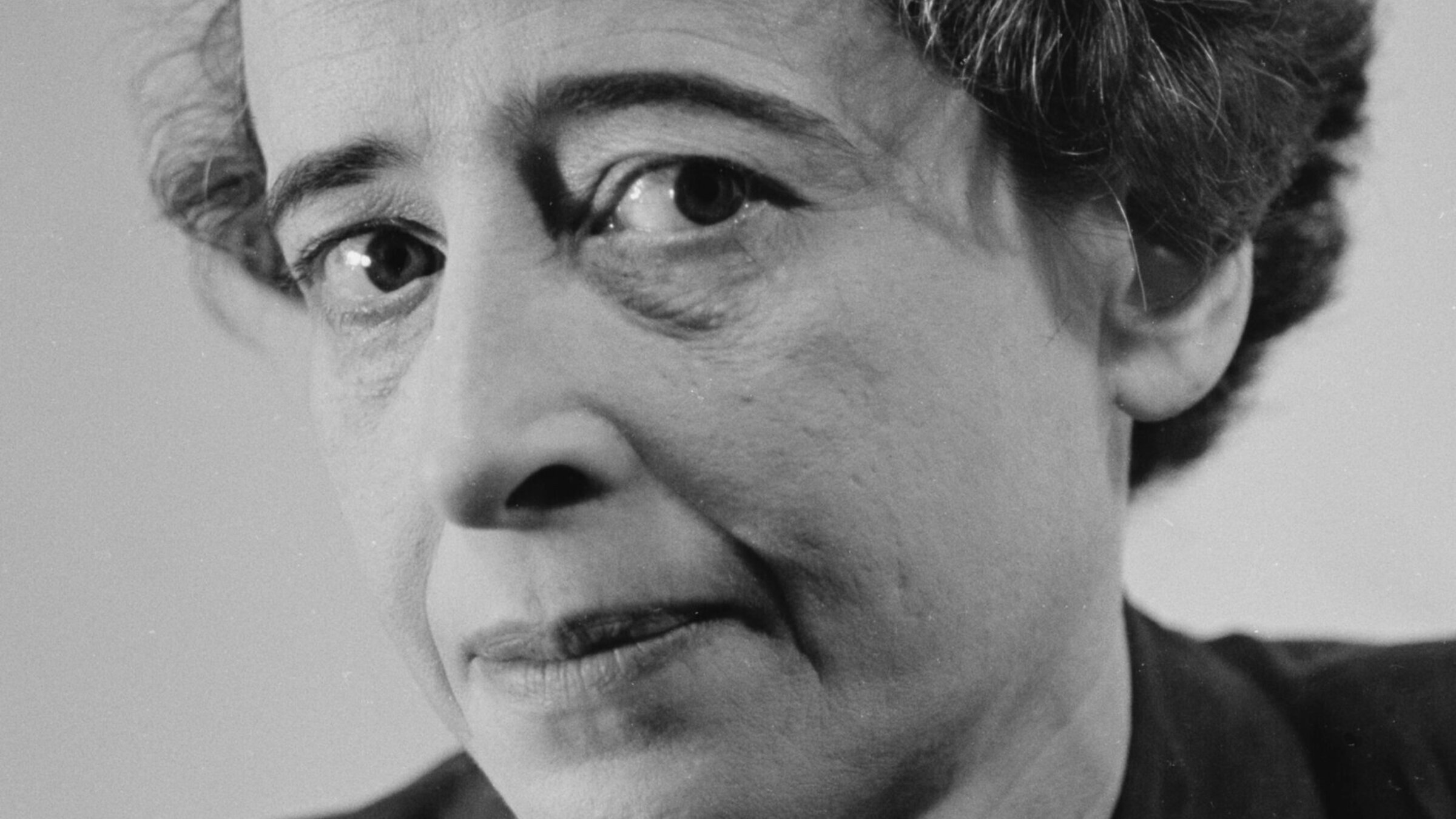In her search for truth, Hannah Arendt would have recognized the lies of Netanyahu, Putin and Trump
The philosopher examined the frailty of truth in an age of when politicians lie as naturally as they breathe

Hannah Arendt, circa 1949. Photo by Getty Images
Little more than half a century ago, Hannah Arendt’s Between Past and Future was published in the United States. The book’s six essays, Arendt explained, were “exercises in how to think.” There could be no task more vital in an age, she wrote, where we find ourselves trapped in a “gap between past and future” — a gap where the past offers little guidance and the future offers little hope.
As Israel continues its brutal and futile effort to destroy Hamas — an effort that has killed more than 22,000 Palestinians — the world finds itself even more deeply lodged in this gap. If Arendt were alive today, she would most likely find herself returning to her key concern in the book: the frailty of truth in an age of when politicians lie as naturally as they breathe.
By “truth,” what Arendt had in mind was not rational truth — the sort we find in mathematics or logic — but instead factual truth. This kind of truth is based on events we experience with other people, built on the testimony of witnesses, and “exists only to the extent that it is spoken about, even if it occurs in the domain of privacy.” Whereas rational truths, at least in principle, can always be rediscovered if forgotten or effaced, this is not the case with factual truth: Once we press the delete button, there is no going back.
Factual truth, Arendt warned, is not opposed to opinion; instead, it informs opinion. Daniel Patrick Moynihan, for whom Arendt was “that wondrous woman,” echoed her when he famously quipped, “Everyone is entitled to his own opinions, but not to his own facts.” What he meant (at least in my own opinion) is that opinions are worse than useless without a shared foundation of facts. In short, factual truth is dumb; neither an interpretation nor an explanation, it simply is, a marker of what has been done and cannot be undone, “the ground on which we stand and the sky that stretches above us.”
But that ground shakes and sky darkens by the true opposite of factual truths, namely lies. In her favorite example to show the stupid stubbornness of factual truths, Arendt quotes Georges Clemenceau, France’s prime minister during WWI. When asked how historians would answer the question about war guilt, he replied, “This I don’t know. But I know for certain that they will not say that Belgium invaded Germany.” Yet those who, like Arendt, shared the experience of living in an age of totalitarianism — or have read histories of that age — knew that Clemenceau was wrong: Political leaders could and did replace factual truths with flat-out lies.

All of which brings us back to our own age of totalitarian-curious ideologies, driven by ethno-nationalism or faith-driven populism, that represent as great a threat to the existence of factual truth as did the older ideologies of Nazi and Soviet totalitarianism. What is at stake is more than a politician’s occasional or tactical falsehood. Instead, observed Arendt, the great danger occurs when an entire community or party embarks upon “organized lying on principle, and not only in respect to particulars.”
We see this phenomenon both in the United States of Donald Trump and the Russia of Vladimir Putin. But we also see it in the Israel of Benjamin Netanyahu, a politician who has always had an adversarial relationship to factual truth. Many of his lies were, and remain, self-serving, employed to propel and maintain him in power. These falsehoods, frequent and familiar, range from his 2015 claim that the Grand Mufti of Jerusalem persuaded Hitler to eradicate European Jewry to his 2021 claim that the police and attorney general had “stitched together cases” in a conspiratorial putsch to remove him from office.
But after the Hamas massacre of more than 1,200 Israelis on Oct. 7, most Israelis have now come to see even Netanyahu’s repeated vow that, under his leadership, Israel would never again be surprised by a terrorist attack as just another in a series of lies: “This is what the state of Israel expects of me, and this is what I will do,” Netanyahu has said.
Of course, the state of Israel now expects Netanyahu to resign in disgrace. But his refusal to do so has fueled a more sweeping and menacing lie, one wielded by the Kahanist bloc to which Netanyahu clings for political survival. They are now exploiting the massacre of Israelis as well as driving the massacre of Palestinians to enact their supremacist and annexationist deceits about the “historical” basis for a Greater Israel. (That they believe these lies are true, Arendt would remind us, does not make them true.)
Most horrifically, there is the lie, embraced by countless Jews whose own past has been seared by pogroms and genocides, that the Palestinians must either pay for Hamas’ crime or that they are human animals who deserve no better. Or, hardly better, the lie many others live when they desperately try not to exercise their thought.
In her book, Arendt cites the old Latin adage Fiat iustitia, et pereat mundus: “Let justice be done though the world may perish.” But is it true, she asks, that a world without justice would be a world in which we cannot live? After all, the imperative of existence trumps not just justice, but every other value or ideal. Except one, that is: truth. As she writes, “No permanence, no perseverance in existence, can even be conceived of without men willing to testify to what is and appears to them because it is.” This remains the task of all those who refuse to avert their eyes from the horrifying plight of the Palestinians and the harrowing lies of Israel’s government.























